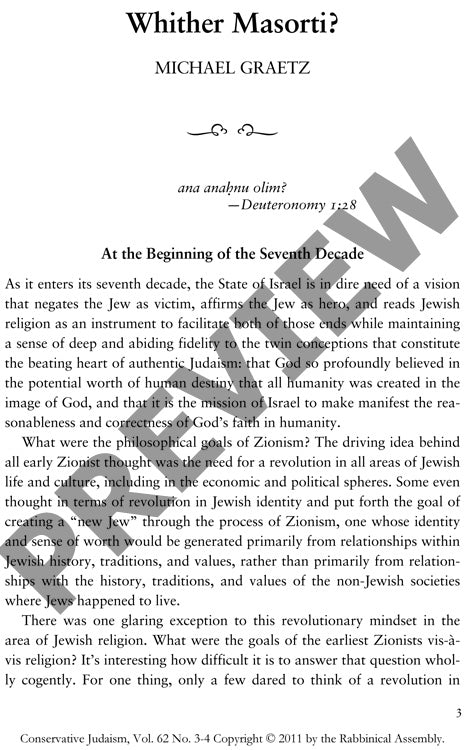Whither Masorti
Couldn't load pickup availability
Israel's religious landscape stands at a crossroads as it enters its seventh decade, with the Masorti (Conservative) movement poised to shape a transformative vision beyond Jewish victimhood toward heroism. While early Zionist ideology revolutionized economic, political, and cultural spheres, it largely neglected religious transformation—a critical oversight that now demands attention. Drawing on theological reflection and socio-political analysis, parallels emerge between previous Jewish returns to the land and their accompanying religious innovations, from Genesis through the Talmudic period. Three unprecedented factors distinguish contemporary Israel: the inclusion of the full spectrum of Jewish life within a sovereign state, immigration from diverse global origins, and the unique phenomenon of Jewish cultural assimilation within a Jewish-majority society. Israel's highly politicized culture, reflected in 92 political parties having held Knesset seats since independence, mirrors Judaism's inherently pluralistic nature. The research reveals that meaningful Jewish religious renewal requires the Masorti movement to establish a political party, advocate for separation of state and religion, pursue halakhic innovation, implement liberal conversion policies, and emphasize social justice. This political engagement within Israel's democratic framework represents the fourth great religious revolution corresponding to the modern return to Zion.

More Information
-
Physical Description
-
Publication Information
Published 2011
ISBN
-
Publication Credits
Michael Graetz

